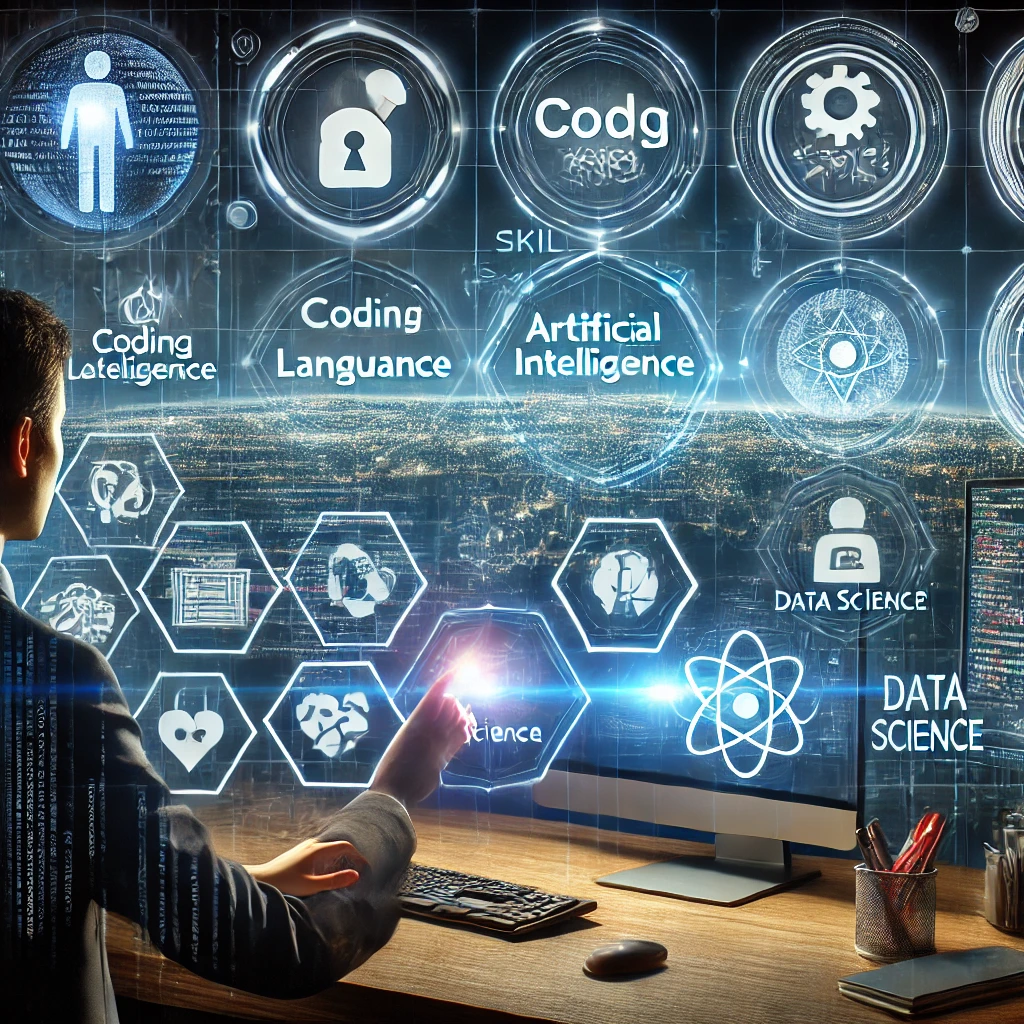Uncovering Key Skill Sets in Computer Science Careers
Introduction
Computer science is one of the fastest-growing and most dynamic fields in the modern world. With technological advancements reshaping industries, the demand for computer science professionals continues to rise. However, the field is vast and requires a diverse set of skills beyond just programming. To succeed, aspiring and current professionals must develop a combination of technical, analytical, problem-solving, and soft skills.
This blog will delve into the essential skill sets required for a successful career in computer science, the importance of continuous learning, and how different industries leverage computer science expertise.
The Growing Demand for Computer Science Skills
The increasing dependence on technology has led to a surge in demand for skilled computer science professionals. Various industries, including finance, healthcare, cybersecurity, artificial intelligence (AI), and data science, rely on skilled individuals to design, develop, and maintain technological solutions. According to job market analyses, skills related to AI, machine learning, cloud computing, and cybersecurity are among the most sought-after in 2024 and beyond.
Key Technical Skills for Computer Science Careers
1. Programming Languages
Programming forms the foundation of computer science. While different job roles require expertise in various languages, some of the most commonly used programming languages include:
Python: Widely used in AI, data science, and web development due to its simplicity and versatility.
JavaScript: Essential for front-end and full-stack web development.
Java: Commonly used in enterprise software development and Android app development.
C++: Known for its performance efficiency, frequently used in game development and system programming.
SQL: Crucial for database management and querying structured data.
Go and Rust: Emerging languages popular in cloud computing and systems programming.
2. Data Structures and Algorithms
Understanding data structures and algorithms is fundamental for writing efficient code. Key concepts include:
Arrays, linked lists, stacks, queues, trees, and graphs
Sorting and searching algorithms (e.g., quicksort, mergesort, binary search)
Time and space complexity analysis (Big O notation)
Dynamic programming and recursion
3. Software Development and Engineering
Computer science professionals must have a solid understanding of the software development lifecycle (SDLC) and methodologies such as Agile and DevOps. Core skills include:
Object-oriented programming (OOP) principles
Software design patterns
Code version control using Git
Testing methodologies (unit testing, integration testing, automated testing)
Continuous Integration and Continuous Deployment (CI/CD)
4. Cloud Computing and Distributed Systems
With the rise of cloud computing, expertise in cloud platforms such as AWS, Microsoft Azure, and Google Cloud Platform (GCP) is highly valuable. Key areas include:
Virtualization and containerization (Docker, Kubernetes)
Serverless computing
Cloud security and compliance
Scalable and distributed system design
5. Artificial Intelligence and Machine Learning
AI and machine learning are transforming industries. Key concepts include:
Supervised and unsupervised learning
Neural networks and deep learning
Natural language processing (NLP)
Computer vision
AI model optimization and deployment
6. Cybersecurity
With rising cyber threats, companies seek professionals with cybersecurity expertise. Essential cybersecurity skills include:
Encryption and cryptography
Network security
Ethical hacking and penetration testing
Identity and access management (IAM)
Security frameworks and compliance standards (ISO 27001, NIST, GDPR)
7. Database Management
Data is a valuable asset for organizations, and proficiency in database management is crucial. Key skills include:
Relational databases (MySQL, PostgreSQL, Oracle)
NoSQL databases (MongoDB, Cassandra, Redis)
Data modeling and normalization
Query optimization and indexing
8. Blockchain Technology
Blockchain is reshaping industries such as finance and supply chain management. Important blockchain-related skills include:
Smart contract development (Solidity, Rust)
Distributed ledger technologies
Cryptographic security principles
Blockchain consensus mechanisms
Analytical and Problem-Solving Skills
1. Logical Thinking and Analytical Reasoning
Computer scientists must analyze problems, break them into smaller components, and devise effective solutions.
2. Mathematical Proficiency
Mathematics plays a significant role in computer science, particularly in:
Linear algebra for machine learning
Probability and statistics for data science
Graph theory for networking and AI
3. Debugging and Troubleshooting
Debugging is a critical skill for software engineers. Understanding debugging tools and techniques can enhance problem resolution efficiency.
Essential Soft Skills for Computer Science Professionals
1. Communication Skills
Effective communication is necessary for collaboration, documentation, and conveying complex technical concepts to non-technical stakeholders.
2. Teamwork and Collaboration
Most projects require teamwork, whether working in a development team or coordinating with cross-functional units.
3. Adaptability and Continuous Learning
Technology evolves rapidly, requiring professionals to stay updated with new trends, languages, and frameworks.
4. Project Management Skills
Understanding project management methodologies, such as Agile and Scrum, enhances workflow efficiency and productivity.
Career Pathways in Computer Science
1. Software Development
Software developers design and maintain applications across various platforms.
2. Data Science and Analytics
Data scientists analyze complex data to extract insights and drive decision-making.
3. Cybersecurity Specialist
Cybersecurity experts protect organizations from digital threats and data breaches.
4. Cloud Computing Engineer
Cloud engineers build and maintain cloud infrastructure to support applications and services.
5. Artificial Intelligence and Machine Learning Engineer
AI engineers develop intelligent systems capable of learning and making decisions.
6. Blockchain Developer
Blockchain developers create decentralized applications and smart contracts.
Future Trends in Computer Science Careers
Quantum Computing: Emerging as a revolutionary field with significant potential.
Edge Computing: Enhancing computational capabilities closer to data sources.
AI Ethics and Governance: Ensuring responsible AI development.
Extended Reality (XR): Growth in AR, VR, and mixed reality applications.
5G and IoT: Transforming connectivity and smart device integration.
Conclusion
A career in computer science offers diverse opportunities, but success requires mastering a combination of technical, analytical, and soft skills. By staying adaptable, continuously learning, and specializing in high-demand areas, professionals can build rewarding careers in this ever-evolving field. Investing in skill development today will ensure long-term success in the technology-driven future.




